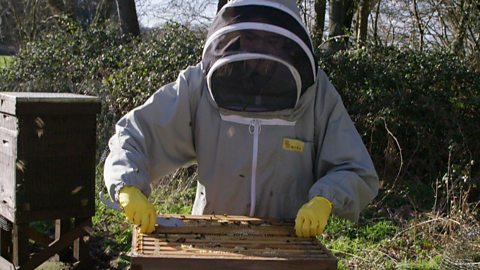Dan is an ornithologist. She’s 23 and from Llanelli.
A lifelong sufferer of anxiety, Dan turns to nature to calm her mind, whilst also protecting the birds and wetlands she loves.
Dan: I'm Dan. I'm 23 and I'm an ornithologist from Llanelli.
Ornithology is actually the study of birds and how we can conserve the species by looking at their trends and their habitats.My career actually started when I was four years old. I started in my garden with my dad, helping me build nest boxes and bird feeders. Birds felt very misplaced in the garden. I really wanted the birds to feel safe and that they had a place to feel refuge, which is similar to how I felt in school.
So I'm actually a huge sufferer of anxiety. I have been since I was a toddler. So my coping mechanism is nature. I do rely on it. So in school, I would actually go and look for trees where I could sit under, do my homework, have my sandwiches, just to escape all the noise and all the big crowds as well.
So my hobby actually turned into my whole career at the age of 16 when I started working for WWT as a learning assistant. So it was my role to teach kids and families about wildfowl and nature and how we can conserve it.
Most of my days start off with an early start. So we want to be up before dawn so that the birds are a lot more vocal. So essential kit is binoculars. I normally have my clicker as well and that just makes it easier for me to record a large number of birds. So when I'm doing a survey, most of my time will be focusing on the species that I really need to pick out. So if I'm doing a estuary survey, I'll be picking out things like the ducks, the geese and also the waders. So that gives us an idea of how many birds are using the estuary, but also the likelihood of what food they're feeding on based off of what the species is and how their bills are shaped.
So I'll always make sure to make a note of what species I'm seeing, whether it's male or female, whether it's a juvenile or an adult. But if there's something in particular that's doing an odd behaviour or looks slightly different, I'll always draw a picture of it as a field note so that I can reference it when I get home later.
So birds are hugely important to our ecosystems. They help in the distribution of seeds from plants and trees, but also they're part of the food chains, but they're also great indicators of climate by how they move around, and whether they're migrating or not migrating. So we get a sense of what's going on based off birds' activity.
So when I'm not scanning through flocks of birds, I spend most of my other time presenting. I write books and write articles as well. But also I create online videos on my website and on YouTube to inspire other people to conserve the species in their gardens and how they can transform their gardens into a perfect wild haven for birds and other wildlife.
Mae angen achub ein adar a hefyd gweithio (gy)’da’n gilydd.
We need to save birds, but also work together.
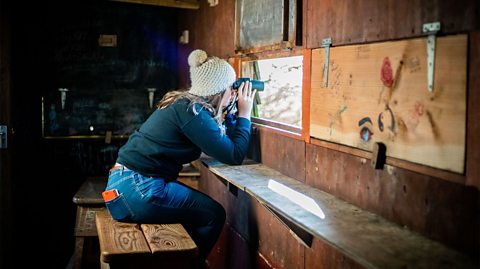
Dan’s journey
“Ornithology,” Dan explains, “is the study of birds and how we can conserve the species by looking at their trends and their habitats.”
Dan first got into ornithology when she was just four years old. She wanted to look after the birds that visited her garden, so her dad used to help her build nest boxes and bird feeders for them.
I really wanted the birds to feel safe and that they had a place to feel refuge
Now, Dan’s a fully-fledged ornithologist. Her day-to-day work gets her out in nature, which helps her to manage the anxiety she's lived with since childhood.


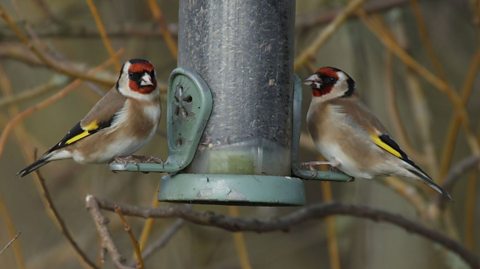
Why is ornithology important?
Dan’s work involves monitoring wildfowl, waders and sea birds around the South Wales coast and sometimes further afield.
Through observing the numbers and behaviour of different species of birds in the areas, Dan helps to assess the overall health of the colonies or locations.
Healthy wetlands are important because they play a major role in protection against environmental issues like flooding, draught and pollution. They are also home to a huge variety of wildlife.
Birds play a vital role in keeping the wetlands thriving: “We get a sense of what’s going on in the wetlands based off the birds’ activity,” Dan explains. Birds distribute seeds, are part of the food chain, and their migratory patterns reveal changes in climate.


A similar job to an ornithologist is a zoologist. A zoologist studies animals and their behaviour.
What to expect if you want to become a zoologist
- Zoologist average salary: ÂŁ18,000 to ÂŁ48,000 per year
- Zoologist typical working hours: 38 to 40 hours per week
What qualifications do you need to be a zoologist?
You could get into this role via a university course. You can study for a degree in a subject like zoology, animal ecology or animal behaviour. You'll need a relevant postgraduate qualification like a master's degree or PhD for some jobs, particularly in research. Having some relevant experience is important, so you could look into volunteering opportunities with specialist organisations, depending on your interest.
Sources: LMI for All, National Careers Service
This information is a guide and is constantly changing. Please check the for the latest information and all the qualifications needed.
For careers advice in all parts of the UK visit: , , and .

How a blocked toilet led to my sustainable business. video
Scientist Elle spent most of her time in a lab, until her friend’s blocked toilet catapulted her career in a whole new direction.
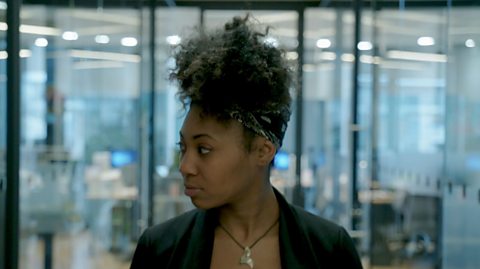
Georgie: marine conservationist. video
Find out how Georgie made her hobby into a career and followed her obsession with the ocean all the way to the sea bed.
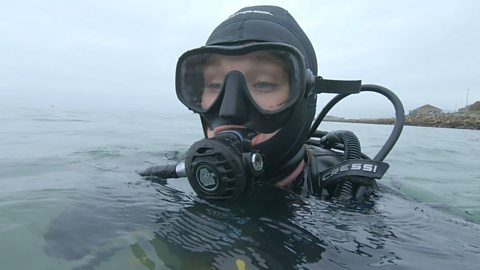
May: beekeeper. video
Despite a near-death experience, May’s love for our pollinating pals won't fade. Find out more about befriending bees.
